The Queen's Speech: What can we expect?
- Published
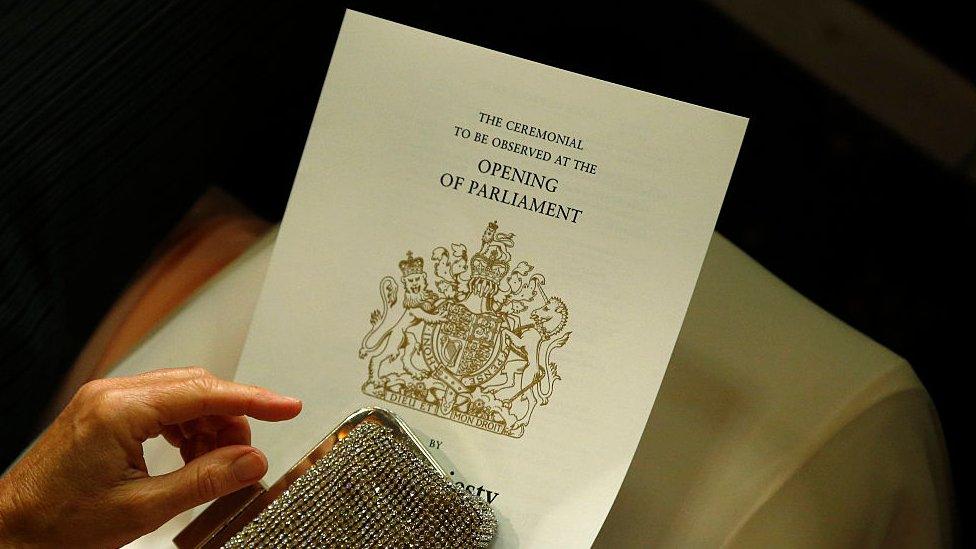
The Queen's Speech on Wednesday will set out the government's proposed legislation and policies for the next session of parliament, as it continues negotiations on a post-election deal with the Democratic Unionist Party. BBC editors and correspondents have been looking at what might shape the government's programme.


A Queen's Speech sets out the government's proposals for legislation in the coming parliamentary session. It does not therefore necessarily have to set out the government's detailed plans for how it intends to conclude an international negotiation.
So do not expect Her Majesty to reveal precisely what form of Brexit Theresa May now wishes to pursue after her electoral setback. That will be determined by future discussions she will have with her party and our parliament where she has no majority.
Instead, the Queen's Speech will set out the legislation that will be needed howsoever we leave the EU. The largest measure by far will be what has been dubbed "the great repeal bill". This is a misnomer. In fact it should be called "the great continuity bill".
This bill will indeed repeal the European Communities Act 1972 and thereby take Britain out of the EU. But that is a technicality. More importantly the bill will transfer EU rules and regulations into UK law so there is no legal and financial chaos when we leave.
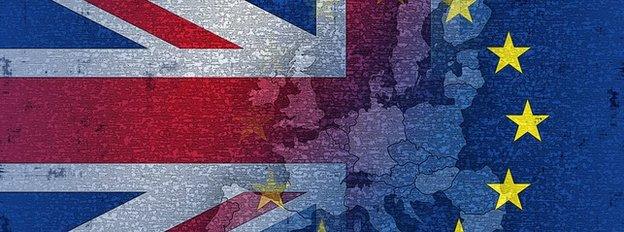
The idea is to preserve the status quo in the short term so that after Brexit parliament can go through these many laws at its leisure and delete, amend or keep what it wants.
This is such a huge exercise that the government will also have to set out how it intends to go through the estimated 19,000 laws it will need to transpose.
It is likely to use fast-track procedures - known as secondary legislation - that will ensure decisions are taken quickly by ministers and officials and there is no parliamentary gridlock potentially lasting years. But this will be controversial as there will be less parliamentary scrutiny than normal of what the government is doing.
And that is not all. The government has also made clear that it will also have to introduce other bills in areas where keeping EU law is not enough and where new legislation will be needed. These may cover immigration, customs, agriculture, fisheries, taxation, data protection, sanctions and nuclear safety. That is a lot of legislation.
The political point is this - parliament will provide the domestic battleground for Brexit, where MPs try to shape Theresa May's negotiating position, and the weapons they will use will be the bills set out in this coming Queen's Speech.
James Landale is the BBC's diplomatic correspondent.


This Queen's Speech would normally reflect the winning party's manifesto. But this year, much of the interest is on what's going to be dropped or watered down. Some of the most contentious pledges seem likely to be ditched.
So don't expect to see the scrapping of the winter fuel allowance or a reduction of the so-called "triple lock", under which the state pension rises in line with the highest of average earnings, the inflation rate or 2.5%. This was to be replaced by a "double lock" rising with earnings or inflation.
What would this mean for the public finances? The "double lock" on pensions wasn't going to happen until 2020. And the cost of retaining the triple lock could be zero if the forecasts on earnings growing more than 2.5% are correct.
It's hard to see how the controversial social care plan, which involved people having to sell their homes until they had only £100,000 left in their estates, could get through parliament in its current form, either.
We don't know how much it would cost to retain the winter fuel allowance as there wasn't any detail on how it would be means tested. As for the so-called "dementia tax", the IFS says there also wasn't enough detail to cost either the original proposal or the subsequent U-turn.

What would really make a big difference to public spending is if the government eases the restrictions on public sector pay increases, currently capped at 1%, or the freeze on working age benefits.
There's been much talk about reining back on austerity. The new government could end up borrowing more, not less.
When it comes to business, this manifesto took a far more interventionist approach than previous Tory pledges. From wading into the energy market with a cap on standard variable tariffs, to plans to ensure worker representation at board level. Theresa May also wanted to increase the amount levied on firms employing migrant workers.
That hasn't gone down well with most firms who are wary of more regulation and fear any additional financial burdens when many are already grappling with rising costs and the uncertainty of Brexit. Could these measures also be diluted? Labour is keen on an even tougher energy cap so perhaps this eye catching measure will remain in the legislative programme.
But it's the spectre of leaving the EU which overshadows everything for business and the economy. Theresa May is certainly under some pressure to take a less rigid approach and several business organisations have already started to wade in.
Additionally, the so-called Great Repeal Bill, which aims to repatriate European law into British law before Brexit, should mean no sudden changes to rules and regulations over the next few years but deciding which laws should be kept or changed will be a huge undertaking.
Emma Simpson is a BBC business correspondent.


When the 91-year-old Queen begins to read out her speech, the ink freshly dried on the now much-discussed vellum, we should get our first clear indication of where providing support for the UK's ageing population sits in the new government's list of priorities.
Will they deal with the very real problems faced by the social care system head on, or will they veer away from the issue after getting their fingers burned during the election campaign?
The social care system helps people who are older or disabled with washing, dressing and medication, among many other things.
With growing demand, squeezed budgets, fewer people getting council help, a shortage of care staff and care companies handing back local authority contracts, it is safe to say this complicated system is in crisis.
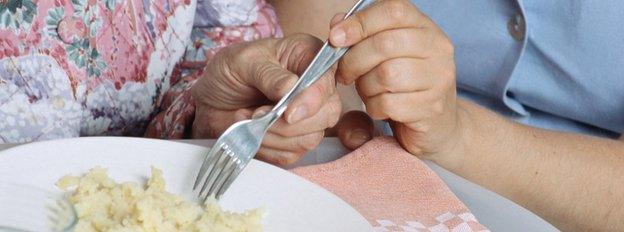
For many experts, the Conservative manifesto missed the point on care. It gave with one hand - increasing the amount of people's money that was protected - and took with the other, by including the value of a person's home in all calculations.
But it did nothing about what many see as the fundamental unfairness of a system that leaves some, particularly those with dementia, facing huge costs - sometimes running into the hundreds of thousands of pounds before they get help.
Only four days after the manifesto launch was a cap or limit on the highest care costs promised, but by then the opposition description of a "dementia tax" had stuck.
So has the election shifted the debate significantly? Is there now an appetite for finding a way to share the risk of very high dementia care costs in the way we share the risk of cancer or other health costs?
After putting short-term money into social care last winter, the government was planning a green paper on funding this autumn. The other main parties have also talked about working towards a cross-party consensus.
But what if the government puts social care into the "too difficult to deal with right now" tray? Well, that is described by at least one commentator as grim, because these problems won't go away.
Alison Holt is the BBC's social affairs correspondent.


Officials at Number 10 are, understandably, giving away no details as to how many of the government's ideas on improving UK security will make it into the Queen's Speech.
There is talk of a Counter Extremism Bill, a Commission Against Extremism and measures to curtail online propaganda, but none of this is confirmed.
But we do know from Theresa May's speech on the steps of Downing Street on 4 June the broad areas where she wants to see more effort being focused. She named extremism and hateful ideologies as the sources of current terrorist threats. This means both tackling online radicalisation and no longer allowing intolerance to fester.
"We need to work with allied democratic governments to reach international agreements that regulate cyberspace to prevent the spread of extremist and terrorism planning," she said in her speech.
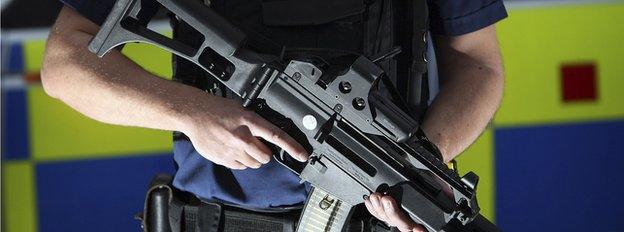
Her meeting in Paris on 13 June with the new French president appeared to reinforce this in principle but it may be too early to see detail inserted into the Queen's Speech. The prime minister has also suggested that custodial sentences could be extended for terrorist-related offences in the light of the prevailing threat.
Military action against the so-called Islamic State in Iraq and Syria, she said, is necessary to deprive terrorists of their safe spaces.
There will be a comprehensive review of Britain's counter-terrorism strategy, made all the more urgent by the Finsbury Park attack on Muslim worshippers.
After four terror attacks getting through in just three months, nearly everyone can agree this needs to be undertaken in order to give the police and MI5 the capabilities they need, and to avoid other potential attackers failing to be spotted and then slipping through the surveillance net.
Frank Gardner is the BBC's security correspondent.


At the outset of the election, the big talking point for education was the 11-plus and the return of grammars in England.
When the votes were counted, the most important figure was the 13-minus - the loss of Conservative MPs and the evaporation of the party's majority.
With this new parliamentary arithmetic, there has been widespread speculation that plans for a new wave of grammars have already been ditched, as too controversial to get through the Commons. But nothing has been confirmed and grammar supporters might hold on to a couple of straws for a scaled-down return to selection.
The Conservatives' new friends in the DUP are pro-grammar, and Graham Brady, the most high profile grammar-supporting MP, wields more influence than ever as the leader of Tory backbenchers.
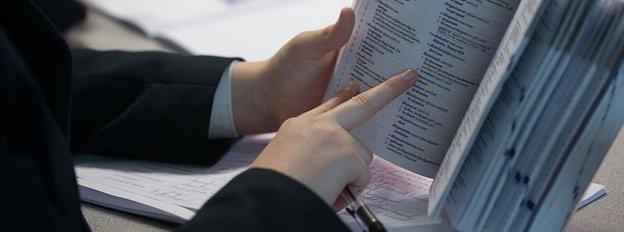
School funding proved to be one of the biggest grassroots issues during the election. And proposed changes to the funding formula, which looked vulnerable before the election, are now likely to be heavily revised, with a higher minimum amount per pupil.
Apart from how school cash is allocated, head teachers have been loudly telling parents (otherwise known as "voters") that the overall level of funding is much too low.
If the new government is to avoid even more vociferous protests, they might need much bigger investments. And there must be every chance that the proposed source of extra money - scrapping universal free school lunches for infants - will be ditched as unpopular and requiring legislation that would now be difficult to get past MPs.
The other big education story was the impact of tuition fees on a resurgent youth vote.
Seats with big student populations, such as Canterbury and Portsmouth South, showed huge swings to Labour, suggesting the promise to scrap fees had been a vote-winner.
Will the government pause for thought? Will they want to be seen as piling more debt on to a younger generation already facing unaffordable housing and stagnating wages?
Also will the new government press ahead with one of the overlooked give-aways in the manifesto - to write off teachers' tuition fees as long as they stay in teaching?
If there is another election in the autumn, fees could be an even more topical issue, because that's exactly when fees and interest charges on loans are being increased again.
Sean Coughlan is the BBC's education correspondent.


The prime minister has made few pronouncements on NHS policy but from the moment she arrived in Downing Street last year she made clear her interest in mental health. It was, Theresa May said at the time and again in a speech in January, a "burning injustice" that not enough help was on hand for those suffering mental health problems.
Given that the Conservatives' main election campaign health announcement was on mental health, its possible that this might feature in the Queen's Speech.
The Tories said they would scrap the 30-year-old Mental Health Act which, they argued, had brought discrimination and injustice with concerns that individuals were held unnecessarily in hospitals and police cells. A new Mental Health Treatment Bill was promised.
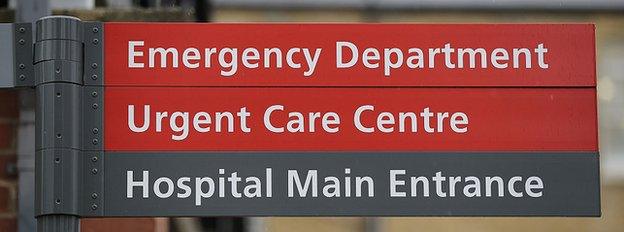
Mental health charities and professionals welcomed the idea of scrapping the old act but warned that a new bill would need plenty of work on detail and extensive consultation. Theresa May could restate the government's commitment to the plan in the Queen's Speech without being specific about the timing for a bill.
Beyond that, health legislation seems unlikely. There is no appetite in Whitehall and the NHS for further system-wide reform. Simon Stevens, head of NHS England, has pushed on with radical plans for joined-up care involving local health and social care leaders.
But he says they don't need new legislation. Ministers, aware that trying to push changes through Parliament without a majority will be difficult, are likely to let Mr Stevens get on with it.
Hugh Pym is the BBC's health editor.


The terror attacks at Manchester Arena and London Bridge changed the course of the election campaign and - together with the Finsbury Park attack on Muslim worshippers- provide the backcloth to the government's law and order priorities.
Chief constables have begun putting the case for increased resources, in particular for neighbourhood policing, their arguments strengthened by public support following the heroic actions of officers during the attacks.
Indeed, funding issues, with proposals on the way for a new formula for allocating central government cash to the 43 forces in England and Wales, are likely to overshadow proposals for police reform.
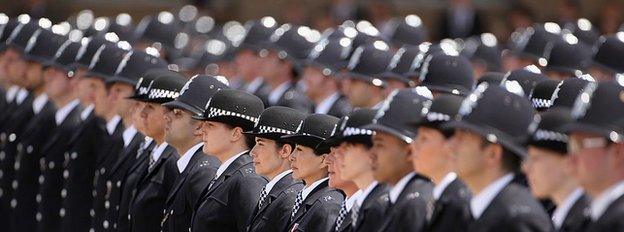
Those plans - giving more control to police and crime commissioners, allowing outsiders to enter the police at senior ranks and establishing a national infrastructure police force - may have to be eased in gradually.
Ministers are expected to reintroduce the Prisons Bill, which was aborted when the election was suddenly called, giving governors more say over the running of jails and bolstering the powers of inspectors.
But the immediate challenge is to stabilise prisons, with more staff, improved drug-detection methods and a renewed focus on mental health. Watch out too for an overhaul of probation; a review of the semi-privatised system, brought in by Chris Grayling, should be published very soon.
Danny Shaw is a BBC home affairs correspondent.
